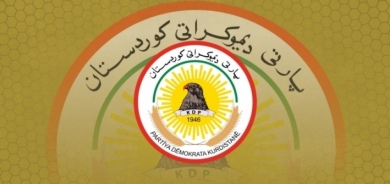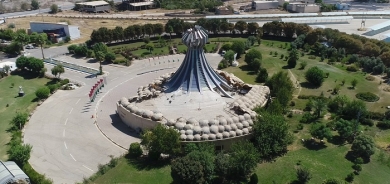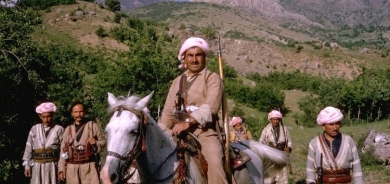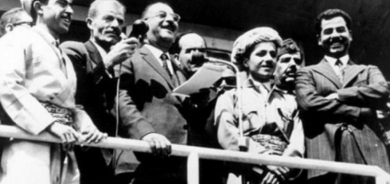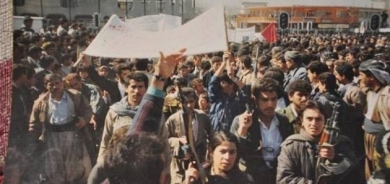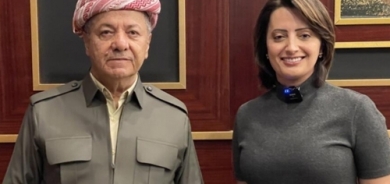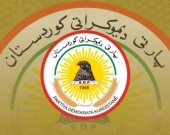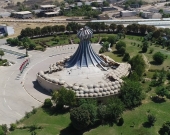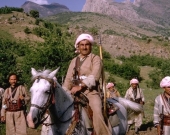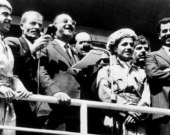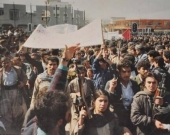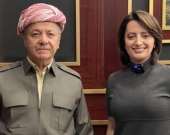Hostility to the Art of Coexistence: The Other is Different, not an Enemy
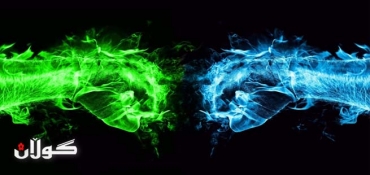
What strikes me is the fact that in our society, art has become something which is related only to objects and not to individuals, or to life. That art is something which is specialized or which is done by experts who are artists. But couldn't everyone's life become a work of art? Why should the lamp or the house be an art object, but not our life?
Michel Foucault
One of the enormous problems during the European Renaissance was the commitment of the people to the medieval culture and they were not able to go with the Renaissance. They were not able to free themselves from the cultural restrictions that made Europe dark and produced only violence and blood in the Middle Ages. This phenomenon is wisely presented by Voltaire in his book Treatise on Tolerance: “I do not agree with what you have to say, but I will defend to the death your right to say it.” This tells us that before the French Revolution, the other was seen as an enemy, not difference; therefore Voltaire asks to keep the difference and he is ready to sacrifice his life for the sake of it.
Similarly, John Locke in "A Letter Concerning Toleration" asks the clergies not to uglify Christ by killing people under his name because Jesus Christ himself teaches us to be tolerant, not to consider the other enemy and divide society into believers and blasphemers. This was the problem of the whole Europe at the time. They did not tolerate each other. Since the clergies knew Latin, Locke wrote the letter in Latin stating that if Christianity is the massage that Jesus Christ tells us, I am Christian more than any other people because Jesus teaches us to be tolerant even with our enemies, not only the Christians. Yet, if Christianity is the message that entitles the churches to encourage people to kill, then John Locke says I am against this.
The question here is does the disease that is spread by some ideologies considering the other enemy--and after the success of French Revolution and the falling of Totalitarianism and Communism-- end? History tells us that it does not. Those who build their intellectual background on the bases of totalitarian ideology, they cannot learn the art of tolerance which becomes the art of coexistence. Those who have totalitarian intellectual background, they can contemplate, but as Gilles Deleuze in his book Difference and Repetition states that only contemplation is not enough, but how to reach an idea that we need it. He also defines the differences in society and between the individuals as the differences between friends. Thus, he asks us to distinguish between real and fake friends. Hence, he tells us that there should be a distinction between those who are difference and friends with those who are friends in appearance, but do hostility towards the other and divide the society. Returning to the definition of contemplation and thought to Deleuze, only those contemplation and thought are considered idea that aims at invention for the new approaches of life. A thinker is someone who creates new concepts out of differences to pacify the humanity and society, not to destroy them. In this respect, contemplation is a new structure i.e. it is a new way for thinking. Creating this new way for life needs-- as Voltaire and Locke tell us-- to give your life for the sake of showing the differences of others.
Back to the message of Kurdish nationalism and the holy religion Islam, can we say Kurdish nationalism teaches us to reject each other and look at each other as enemies? Ahmad Khani, like Voltaire and Locke, asks their people to be united and be friends. This is the only way to gain dignity. Similarly, the message of Islam tells us "Help ye one another in righteousness and piety, but help ye not one another in sin and rancor." This means that God is against dividing Muslim society into friends and enemies. This teaches us that it is not a good work for a Muslim to look at his brother with the eye of an enemy.
Thus, the aim of this writing is not to treat the view that the sympathizers of this party look at the other and see the other as an enemy, but this is an attempt to go back to history not in terms of living in the history, but in terms of creating a debate so as to enlighten the future. The more this kind of thinking continues to look at the other as an enemy, the less there is a possibility for this writing to produce the same kind of reaction, but it will return to Ahmad Khani who asks us to be united and unified. Here, the question is what is the purpose of division and hostility and is there an example in the entire world that on this kind of thinking one could succeed? What will the policy based on totalitarian assumption and uglifying the other lead us to? Answering these questions lead us to redefine a new concept for our differences. In this definition, difference is not rejection and hostility, but rather it is producing different contemplation for the meanings and values of life. Thus, a difference will become the real will of all the different parties in order to find the truth, but what kind of truth?
Certainly the truth that is the product of all differences: different meanings and different values of life. So, if one announces that they possess the truth alone, they will have everything but the truth. Those who believe that only themselves are right and the others are false, only themselves are believers and the others blasphemers, they are living still before Einstein's theory of relativity. Those who think that contemplation ends, they have not understood the fact that the contemplation and thinking started after the theory of relativity. The idea that reconciles different concepts, formulates different meanings and concepts, and shows again the meanings and values of concepts.
The concept of opposition in democratic society: its meanings and significances
The beauty of a democratic system is a reflection of plurality in society. The art of a democratic system is the cooperation of the different views for the protection of the system. Hence, the friendship between parties in authority and parties in opposition starts from the point at which both are trying to protect the system. When people elect a party to run the country, it is on the bases of the party's promises to protect the system and develop the society. The opposition, however, has the right to monitor the parties in authority so the authority would not be allowed to threaten the system.
Since the aim of the authority is to protect the democratic system, it means that the opposition is working with the authority to protect the system because it monitors the authority. In mature and developed democratic societies, the opposition parties are committed to the mechanisms and values of the system more than the parties in the authority because the authority are sometimes obliged not to commit to the system. Thus, often parties in authority avoid dialogue and they compromise with the opposition parties, and the opposition uses this as a kind of pressure card to oblige the authority to hold dialogues and make compromises regarding issues related to both. Yet, in developing democratic societies, again the opposition parties are more than the authority committed to the system because they need to solve the problems using dialogue and compromise. Thus, it is true saying "the opposition is the oxygen of democracy." However, the problem is when a party—either in the opposition or in authority—does not believe in democracy. In this case, the future of democracy becomes under threat, and it harms the democratic process. Hence, it cannot accomplish what the individuals in society are waiting for.
Sick Democratic System
A democratic system is defined as sick when the principles of liberalism and the laws of the game of democracy are used for different purposes rather than protecting the system. Fareed Zakaria, an Indian-American journalist and author, labels this situation as changing liberal democracy to illiberal democracy. What crates this is not the rejection of the results of a ballot box. In many countries, elections are held on international standers, but the ballot boxes produce struggles instead of gathering the differences and making plurality for defining freedom. Thus, it threatens the future of democracy. This comes out after the third wave of democracy appeared. It does not make the world-- after the destruction of Berlin Wall-- free liberal societies, but it makes democracy without liberalism another source for producing totalitarianism. This cannot be true for the countries in central Europe since they have liberal backgrounds, but it is true for all Eastern European countries, former Soviet countries, and most of the countries in Latin America.
This condition makes researchers on democracy confused because when the totalitarian parties admit the process of democracy, they do not come to change their ideology of totalitarianism and possess an open view, they come to use mechanisms of democracy to legitimate their totalitarian idea. Zakaria in Future of Freedom relates the reason behind using mechanisms of democracy by these parties to the lack of civic constitution in their country, which organizes the principles of liberalism. Thus, in the case of lacking such a constitution, democracy relegates to only polls and there is no liberal democracy. Zakaria considers the principles of liberalism more important than the process of democracy. That is why he hails the governance system of East Asian countries such as Singapore, South Korea, Japan, Taiwan, and to some extent Malaysia. It is true that there are flaws as far as democracy, yet since the principles of liberalism are crystallized, each of these countries is considered parallel to Western liberal democratic states, or First World States, rather than Third World states. Although Pakistan is one of the Commonwealth states and there has been an election for 50 years, it is classified still within the last Third World countries because the principles of liberalism have not been crystallized yet.
Here, the question is, do the principles of liberalism mean the rights that the liberal system provides in society, or do they mean how politics work for providing these rights in society? Certainly they mean the politics work for producing these rights, rather than establishing the rights. For example, most if the Commonwealth states are in theory with the rights that the liberal system asserts, yet since establishing these rights relate to the manner and conduct of parties in society, in practical terms since the parties cannot be partners in the political process, divided, and look at each as enemies, they cannot be seen as liberals.
As a result, freedom is not only achieved in the country, but also it is threatened in the present and future. Thus, the discussion is not about which manner is democratic or not, the core of this writing is about how to produce democracy in terms of liberal democracy. In this respect, if we look back to the political history of Britain, we see that Thomas Hobbes for the sake of liberating England from the aftermaths of the civil war and returning English society to its natural form, he formulated the theory of Leviathan in order to, as he mentioned in Leviathan, change chaos into stability, disorder into order, and start the life again. Hobbes in his theory returns to the Roman law, the empire which Fareed Zakaria defines it as with moving Constantinople from Rome to Istanbul, everything changed, the rule of Church ended, and the rule of humans implemented.
Perhaps, Roman laws and Leviathan are subject of criticism, and even the English who see leviathan as a masterpiece of political history of the country cannot implement the theory of Leviathan or it may not suit the political reality of Britain, but every one looks at it with respect because it lays the foundation brick of the first liberal system in the world prior to French revelation.
This background is necessary in order to know how to avoid democracy being sick. It is just like injecting a child with a vaccine in order not to be sick. This tells us, by implication, that liberalism is a vaccine of democracy, and those parties who do not believe in liberalism and participate in the process of democracy, instead of constructing democracy, they will make it sick.
Kurdistan Region and the Relations between Authority and Opposition
Can we say that democracy in Kurdistan Region is sick? If it is, what is the cause of this? How to treat it and find a vaccine in order to prevent it? If we openly speak about these questions, it can be said that the situation in Kurdistan is not healthy. Although it is leading to a kind of disease, there is still a possibility to treat it and take mechanisms in order to protect our society. Was already the process of democracy sick? How was it diagnosed and how was it tried to be treated? Answering these two questions opens the door for answering the previous questions as well. The struggles and disputes between KDP and PUK in Kurdistan sickened the process of democracy in a way that we can say it closes at death's door. Yet, the wisdom of President Barzani, President Talabani, and the understanding of the heads of both parties for surviving the democratic process from death and recovering it reached to the point that they signed the strategic agreement. The aim of this agreement was to reconcile KDP and PUK as Kurdistan was going through critical moments of change. It aims at running the country as partners, practicing the peaceful transfer of power, and finding a way for emerging a positive opposition in Kurdistan after ending the agreement.
Despite its deficiency, generally the agreement has accomplished important historical achievements for Kurds and Kurdistan:
1. The agreement between KDP and PUK resulted in allying Kurds with the coalition forces to liberate Iraq. If the Kurds was not part of this coalition, Turkey would have been replaced and then Iraqi constitution would not have been written in a way that would guarantee the Kurdish rights. We all know that after the fall of Saddam, how were Turkey's relations with Kurdistan. If it was not for the agreement and the de facto situation, Turkey would not have dealt with Kurdistan Region as one of its neighboring countries.
2. The agreement made the president of Iraq and its foreign minister Kurdish for the first time in the history of Iraq.
3. The strategic agreement between the KDP and PUK made the Kurds run the Kurdish areas outside the administration of Kurdistan Region, despite the delay in the implementation of Article 140 of the Iraqi Constitution.
4. It thawed the icy tension between KDP and PUK, and it taught both parties to run the country together in a way that no one feels which senior official belongs to KDP or PUK in the ministries.
5. The agreement put Kurdistan on the map of the world's energy. This step was criticized by Change Movement and they was against Kurds running their own natural resources, but what we are now hearing is that Kurdistan is directly going to export oil through pipeline transport in the next two months. This will create the economic and political future of Kurdistan.
Perhaps, when it is said to the sympathizers of Change Movement that you are against this, they say that they are speaking on corruptions in the oil sector, but we are telling them that the income of oil belongs to all Iraqis. If they were genuinely keen on the interests of the people of Kurdistan, so why did not talk about corruption of oil in Basra, for example, where each political party alone exports or rather smuggles oil abroad? Although in Kurdistan Region the minster of natural resources visited the head of Chang Movement and after that Prime Minister Mr. Nechirvan Barzani published oil contracts in a book on internet, why do they want to play along the lines of Hussein al-Shahristani and they are not with the Kurds having the constitutional authority to run their own resources.
Why against the Strategic Agreement
When in the internal elections of PUK Nawshirwa Mustafa's group had not got enough votes, he announced separation from PUK. After this, he started to criticize the strategic agreement. Yet the question is, if he had not lost the election, would he have had the same attitude or else? Those who are experts and observers of internal politics of Kurdistan indicate that if he had not lost the election, he would have dealt with it tactically and he would have made the agreement as a truce in order to prepare himself for another war with KDP. When his bloc had not have a role within PUK, the stage of hostility to KDP ended. Thus, he divided the PUK and established Change Movement to continue attacking KDP. Hence, he started criticizing the strategic agreement with the aim of dissolving it. However, the division of the PUK by Mustafa was to entice the KDP so KDP would initiate in dissolving the agreement. Yet, Barzani and Talabani's logic and wisdom has proved that the agreement has served the interests of Kurds and given priority to the interests of Kurdish people rather than KDP's loss of some parliamentary seats as a result of Change Movement's separation from the PUK. When Mustafa realizes that President Barzani and KDP do not look at the agreement with partisan interests, and above all after president Talabani's illness—we hope he will recover soon—all of the parties see the attitude of Barzani and KDP: they are ready to support PUK, then Mustafa announced his full hostility to KDP, particularly in this coming election when PUK will participate with an independent list without ending the strategic agreement. This means that the Change party and Mustafa will lose this game of democracy as well. Hence, in order for this game will not happen and will not see their loss, he has started from now to disturb the situation, but it is impossible for him to make his dream of dissolving the agreement come true just like his previous dreams.

